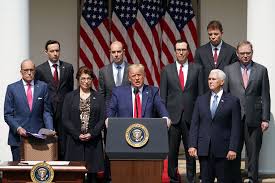LTP News Sharing:
By The Editorial Board | The Wall Street Journal
President Joe Biden participates in a CNN town hall at Baltimore Center Stage in Baltimore, Oct. 21. – PHOTO: NICHOLAS KAMM/AGENCE FRANCE-PRESSE/GETTY IMAGES
The President’s town hall performance is cause for concern.
White House handlers shield President Biden from the press as much as possible, and Thursday’s town hall on CNN shows why. Even with a friendly audience and softball questions, Mr. Biden’s performance revealed why so many Americans are losing confidence in his Presidency.
One big problem is that Mr. Biden often doesn’t seem to know what he’s talking about. Take rising gas prices that are a growing public concern. Mr. Biden blamed the OPEC cartel for not producing more oil, but then he said the answer is “ultimately . . . investing in renewable energy.”
Most cars still run on gasoline, not solar or wind power. Electric cars remain impractical for most Americans. The way to reduce gas prices is to produce more oil to increase the supply. Mr. Biden wouldn’t have to plead with OPEC to produce more if he weren’t working so hard to limit U.S. oil production.
How about the supply-chain bottlenecks contributing to shortages and inflation? Mr. Biden blamed Covid and employers who won’t pay enough to attract workers. But employers are bidding up wages nearly across the economy and they still can’t fill the more than 10 million job openings nationwide.
Asked if he’d call in the National Guard to address the shortage of truckers, Mr. Biden said he would. But the deployment of the Guard is actually controlled by Governors, as the White House later clarified.
Mr. Biden’s confusion extended to foreign policy, which is supposed to be his strength. Regarding Taiwan—a crucial issue with China—Mr. Biden misstated U.S. policy. Asked “can you vow to protect Taiwan,” Mr. Biden said “yes.”
CNN anchor Anderson Cooper must have figured this was news, because he gave Mr. Biden another chance: “So are you saying that the United States would come to Taiwan’s defense if—”
Mr. Biden: “Yes.”
Mr. Cooper: —“China attacked?”
Mr. Biden: “Yes, we have a commitment to do that.”
The actual U.S. policy toward Taiwan is “strategic ambiguity” about U.S. intentions. The Taiwan Relations Act commits the U.S. to help Taiwan defend itself but does not include a NATO-like commitment to go to war to defend the island democracy. Many people think the U.S. should make such a commitment explicit so Beijing doesn’t miscalculate and invade the island. Was Mr. Biden announcing a change in U.S. policy?
Apparently not, because the White House soon walked back Mr. Biden’s words. Strategic ambiguity lives, or perhaps we should say strategic confusion in the case of Mr. Biden. You have to wonder what the hard men in Beijing think of this performance. Does the fast White House retreat from Mr. Biden’s words mean the U.S. doesn’t intend to defend Taiwan? What is U.S. policy? Wars have started amid such mixed signals to adversaries.
We take no pleasure in pointing this out, since the U.S. needs a President who can handle the strains of the job. Mr. Biden was never Demosthenes, and all Presidents stumble in speech. But Mr. Biden’s frequent public confusion about the major issues of the day is a reason for the growing public concern.
https://www.wsj.com/articles/the-confusing-mr-biden-cnn-town-hall-anderson-cooper-taiwan-opec-11634940377?mod=opinion_lead_pos1
Author: Frances Rice







